Last month I visited my local Sears Auto Center to learn the ins and out of tire maintenance. This month, Jaime explained how to properly take care of my car’s engine fluids. Even though all of these are usually checked by technicians when bringing in your car for scheduled maintenance and tune-ups, it’s always good to know the basics yourself so you can be proactive in avoiding costly major repairs.
Coolant 101
The name of this fluid gives away its purpose, doesn’t it? Coolant is the fluid—usually bright green in color, but also found in orange, yellow, and red hues—that allows the engine to maintain its optimal temperature by redistributing heat away from the engine through the cooling system. Proper maintenance of this fluid, aside from keeping it at the proper levels, is to use a dip strip to check it’s within the proper chemical parameters to function correctly. Periodically the system will need to be flushed and replaced with all new coolant.
What’s the difference between coolant, antifreeze and radiator fluid?
This is a trick question because they are all the same thing! This multi-functional fluid helps keep your engine from overheating, freezing and also acts as a lubricant.
What could happen to my car if I don’t have the cooling system serviced?
Without coolant, your car’s engine would overheat and cause major engine damage, including the radiator, heater core and cooling system components. None of which you want to deal with or pay for, I promise you!
Why is coolant used instead of just water?
Yes, water may be great for holding and distributing heat but unfortunately it also freezes!
What’s the Deal with Differential Fluid?
Housed in compartments on the front and rear axles, the main responsibility of the differential is to help evenly distribute the vehicle’s power to each wheel. Also part of what’s known as the “drive train”, when this fluid isn’t maintained properly you will lose the ability to operate your car and also cause damage that is very expensive to repair.
Why is it so important that the differential fluid be replenished regularly?
The differential system is comprised of lots of metals parts and gears that move at up to 5,000 times per minute! To avoid friction and grinding, the differential fluid needs to be kept up to provide the proper lubrication.
[infobox]TIP: If you use your vehicle to tow a lot, you’ll need to check/change your differential fluid more often![/infobox]
Transmission Fluid: The Other Dipstick
It helps to think of transmission fluid like a lifeline. A slippery liquid that coats all of the moving parts inside your transmission, transmission fluid is designed to cool and lubricate your transmissions internal parts so the gears can shift smoothly without tearing them to shreds.
How often does transmission fluid need to be changed?
This varies by car make and model, but most manual transmission fluids need to be changed every 30-60,000 miles. Automatic transmission fluids may not need to be changed for 60-100,000 miles. Check your vehicle’s owner’s manual for the timing on your car. Things like frequent stop and starting or heavy towing/hauling will also affect longevity.
Another easy way to check is that your car’s transmission fluid should be clean and pink or red in color. If it’s brown or dirty, you’ll definitely want to get it changed!
The 411 about Fuel System Cleaning
With the cost of gas weighing heavy on everyone’s minds, fuel economy is something that is always talked about and of concern with car owners. By taking care of your car’s fuel system, you’ll be doing yourself a favor by making sure your car is burning fuel as efficiently as possible.
What makes up the fuel system?
- Fuel Tank
- Fuel Line
- Fuel Pump
- Fuel Filter
- Fuel Injector
- Combustion Chamber
- Spark Plug
How do I know when my fuel system needs to be cleaned?
Have you ever thought to yourself, “Hm…that tank of gas didn’t go as far as I expected it to”, chalked it up to being a fluke, but then realized it was happening more often that you’d like? Well a noticeable decrease in fuel economy is a good indicator that your fuel system needs to be cleaned. Other indicators are rough starts or poor performance, like sputtering, while driving.
Did you know that using the wrong grade of gasoline is a big culprit in poor car performance? Use too low of a grade, and your car’s engine will not get the oxygen it needs and won’t be able to perform at it’s most efficient. Use too high of a grade and you literally are burning your money away because it simply can not make use of the high octane and it just goes to waste! So check your manuals and use the proper grade gas for your car.
What are the benefits of a clean fuel system?
Not only will your car burn fuel more efficiently (saving you money at the pump!), but your vehicle will have less emissions and will overall perform better.
This post is written on behalf of Sears Auto Center. I visited a location near my home and was provided a short educational experience in order to share this post with you. All opinions remain my own.
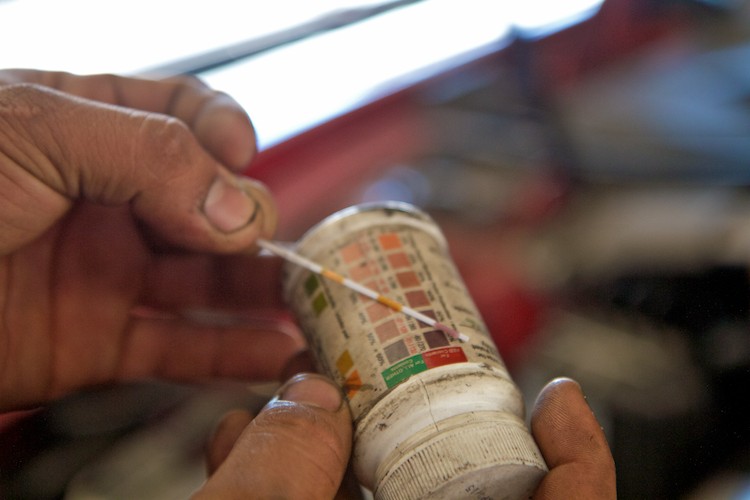
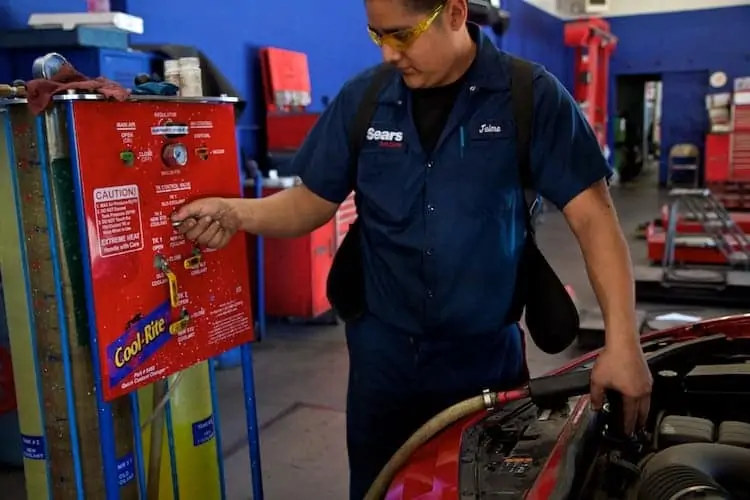
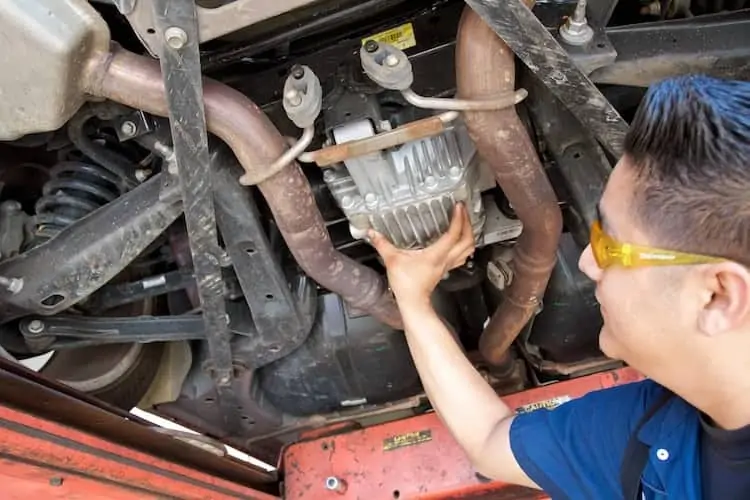
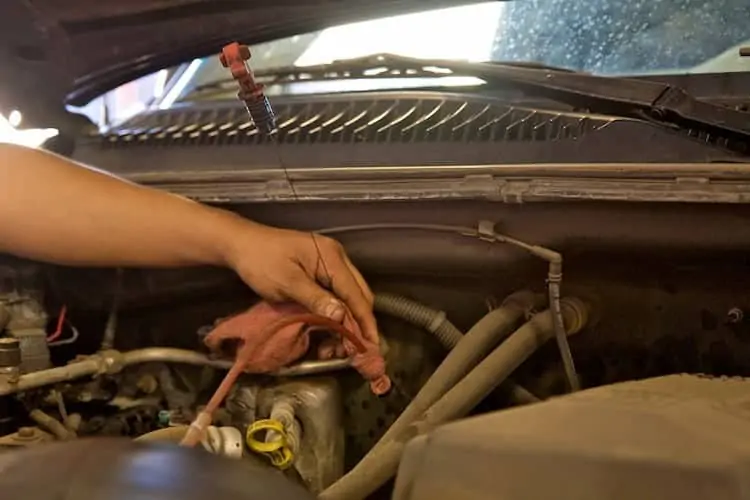
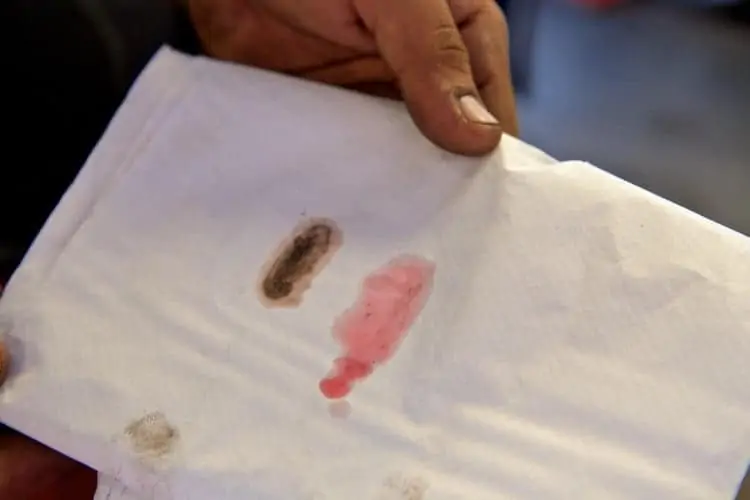
No, I am not. Thanks for the reminder and all of the great tips!
Great post! I hadn’t even realized coolant came in different colors until recently, when my brother said the coolant in my son’s car was one color and should have been another.
I can honestly say I know almost nothing about car engine fluids. I am thankful for places like Sears Auto to help me out!